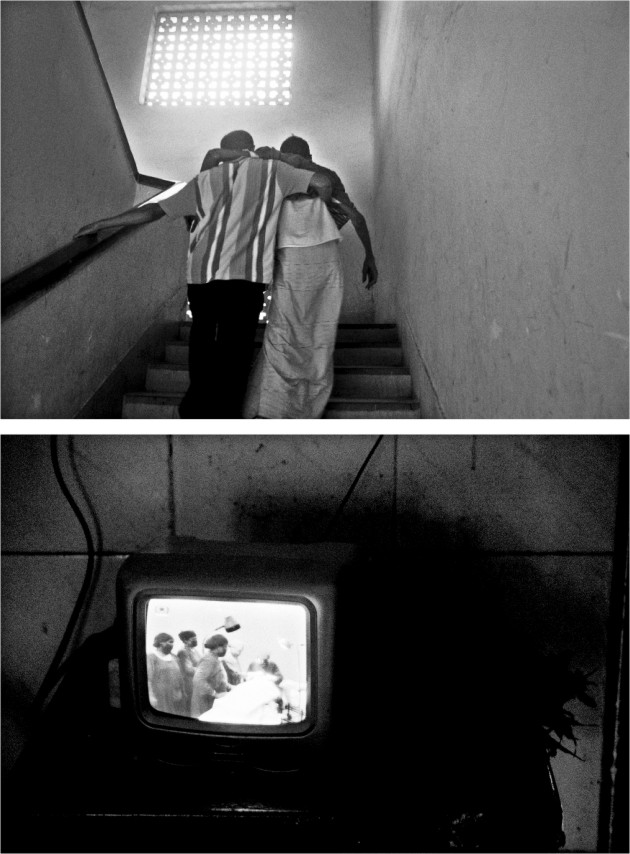
Inside
|
TB (Tuberculosis) in Bangladesh A photo feature by Amdadul Huq
"Only 70 beds for 16 crore people, and Allah reserved one for me. How lucky am I!" Said Md. Nozrul Miah. Nozrul is a Multidrug-Resistant (MDR) Patient, from Mymensingh, some 130km away from Dhaka. He worked as a land surveyor before he was admitted into hospital for four months. In the hospital where 70 patients are being treated, Nozrul Miah feels dejected, but still hopes to be cured. Another patient, Amirul Islam, 22, has been sick for seven years, and showed me photos on his mobile phone of his previous state, before arriving at the hospital. They live as a group with nothing to pass their time; they must remain in bed, needing assistance to walk, bathe, eat and other such aspects of daily life. I found two patients, who looked like they were sharing the same bed. Later I discovered they were husband and wife. Anowara Begum has been in this hospital with her husband Abdul Jobbar from Khulna, 55, for six months looking after him I saw her assisting Jobbar bathing. These lonely people live in pain and depression, struggling for hope. As the treatment of MDR is time consuming and requires concentrated care for two years, sometimes patients lose their passion for life, like Abdul, who is in hospital for the third time. I meet patients like Azid Dey from Chittagong, who came to hospital hoping for a cure - he is now partially deaf due to the side effects of his treatment. He talks on the phone with his family members with a hearing aid and has been here for two months. I ask myself one question, what makes these patients wish to survive?
I talked to them and found out that the hope of a cure is the strength that drives them to live. Patients like Alomgir Hossain, Abdul Hakim, Manik Chondro Mollik, Hanif, Tara Miah, Azid Dey, Aowal, Jontu, Amirul Islam, Delower Hossain, Sakawat Hossain, Ruhul Amin, Saiful Islam, Milon, Nozrul Miah, Abdul Jobbar and Saleh Uddin are all suffering from MDR tuberculosis. I know that images alone cannot change these individuals' situations, but I believe that photography has helped me to better understand them, to question the society that allows so many to live abandoned and idle, and to analyse my own feelings and attitudes on the subject of TB sufferers.
|




